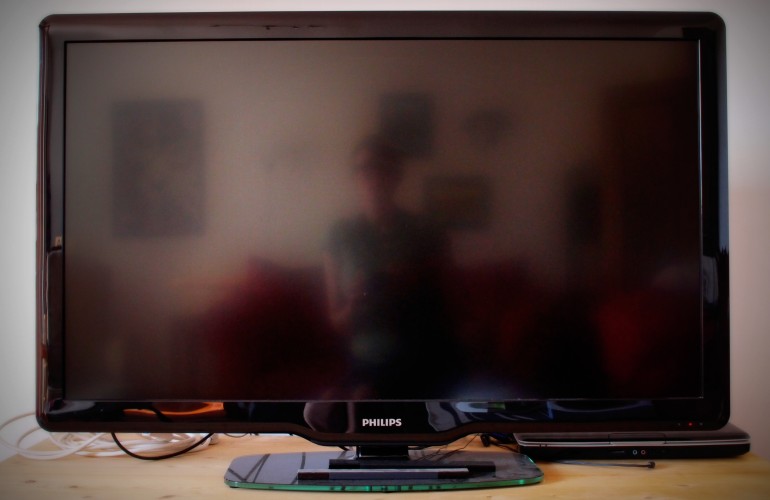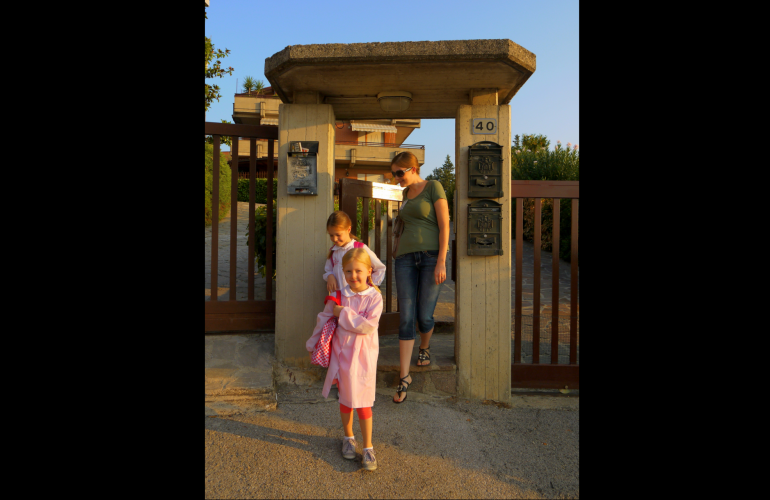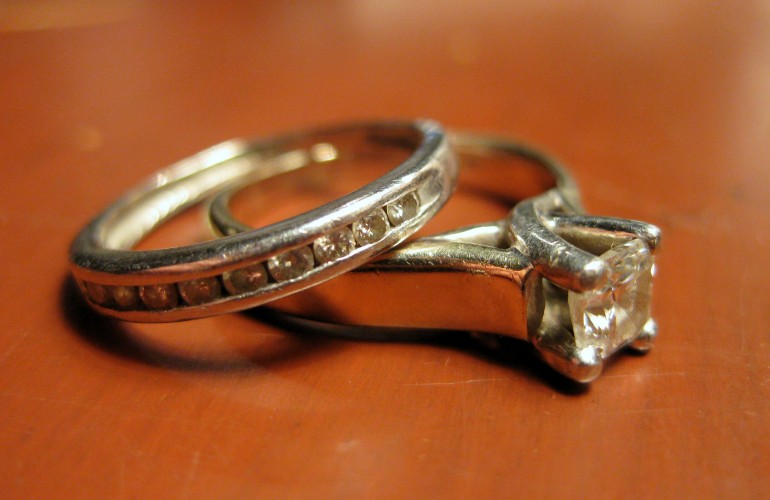At the bidding of a friend, I finally took the Highly Sensitive Person test this morning and ended up selecting 25 of the 27 points. (14 are enough to classify someone as a HSP, so I assume 25 means something like Watch Out, This Person May Spontaneously Combust At Any Moment.) This explains a lot about how I operate in general and how I processed last week in particular. According to the book on which the test is based, we combustible folk absorb more of the environment around us and thus become more overwhelmed than the 80-85% of the population with normally functioning brain-filters. Therefore, if—hypothetically—I spent a week hearing about the atrocities committed by ISIS in Iraq, watching Humans of New York give faces to those suffering in the Middle East, revisiting my old depression diaries in response to Robin Williams’s suicide, and following the shocking play of events in Ferguson, I might—hypothetically—have trouble unpeeling myself from bed in the morning.
I have been heartbroken by the news, and this has been bothering some people.
Some people have not been heartbroken by the news, and this has been bothering me.
Everywhere I’ve looked this last week, humanity has confronted me: prejudice and suffering and community and callousness and hope and no-hope and initiative and frustration and rhetoric and rawness and so many conflicting interpretations of which rights we should allow to those different from us. As a species, we have yet to mutually agree to each other’s right to live; opinions just get more fragmented from there. And it’s all so much, so very much, so close to too much for my porous mind to bear.
“A billion people died on the news tonight
But not so many cried at the terrible sight
Well Mama said, It’s just make-believe
You can’t believe everything you see
So baby, close your eyes to the lullabies
On the news tonight”
Over the weekend, I was pulled in by this passage from my favorite book, in which 12-year-old Douglas Spaulding is confronting the reality of death:
“At the cowboy matinee last Saturday a man had dropped down dead on the white-hot screen. Douglas had cried out. For years he had seen billions of cowboys shot, hung, burned, destroyed. But now, this one particular man…
He’ll never walk, run, sit, laugh, cry, won’t do anything ever, thought Douglas. Now he’s turning cold. Douglas’s teeth chattered, his heart pumped sludge in his chest. He shut his eyes and let the convulsion shake him.
He had to get away from these other boys because they weren’t thinking about death, they just laughed and yelled at the dead man as if he still lived. Douglas and the dead man were on a boat pulling away, with all the others left behind on the bright shore, running, jumping, hilarious with motion, not knowing that the boat, the dead man and Douglas were going, going, and now gone into darkness.”
This is how it is for me, how it is when I hear that a child has been beheaded by a terrorist group in Iraq or a teenager shot by police in Missouri or a comedian hung by his own fractured mind in California. I feel the loss of life like a blow to my head, and the weight of all the things that person will no longer do or see or experience or be sends concentric shock waves through my system. Do you feel it too? The immense mushroom cloud of tragedy balled up in that single word, dead?
If you don’t, that’s okay. At least, I’m doing my very best to accept that it’s okay. According to the test I took this morning, Douglas Spaulding, Jack Johnson, and I are among a small percentage of people who feel everything deeply. This doesn’t mean that others feel nothing; it just means they have a thicker layer of protection between themselves and the goings on in the world. It just means that they can watch the news, compartmentalize what they’ve seen, and go on with their days.
When I watch the news, I fall in headfirst.
My conscience has waffled back and forth for years on the topic: Should I stay up to date on events as a responsible and caring citizen of Earth? Or should I avoid the news as much as possible in order to spare my heart and mind from constant overload? Should I engage the negativity, or should I retreat from it? Is awareness worth taking nightly boat trips alone with the dead? I haven’t reached a conclusion yet that gives me peace, and maybe that’s because the world is so far from a place of peace. As long as I continue to be a Highly Sensitive Person in a highly human world, I’m going to struggle with a weight that most people don’t often feel. Every news link I click in my lifetime will carry a price.
I’ve been thinking though that if I were the one in the news this last week, if it were my death being announced in professional newscasterly tones and argued about by a parade of talking heads, I would want someone out there to cry for me. I would want the loss of my life to mean enough even to a complete stranger in another country that she would lose sleep over it. I would want her to get willingly into that boat with me, away from the motion and noise, out where I was no longer a news story but a full human carrying the sum of my years and experiences and aspirations with me off the edge of the world.
So I’m here… not seeking out the news today but not hiding from it either, not exactly loving my status as Highly Sensitive Person but not exactly wanting to trade it out either. If my role in this sea of humanity is to care—even too much, even beyond my own pain threshold—then I’ll care to the best of my ability. And if your role is different, I’ll do my best to remember that you’re the normal one here… and that whenever I spontaneously combust over the ten o’clock news, you’re the one who can put out the flames.






